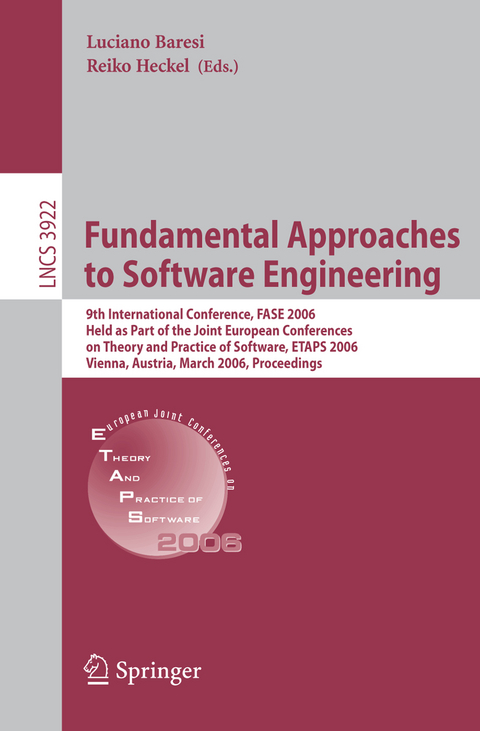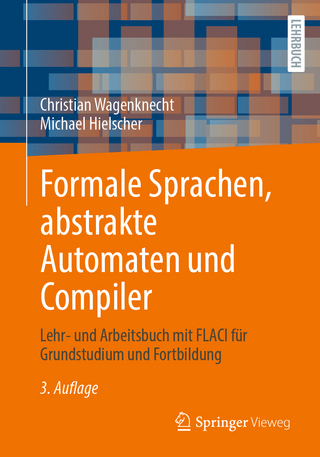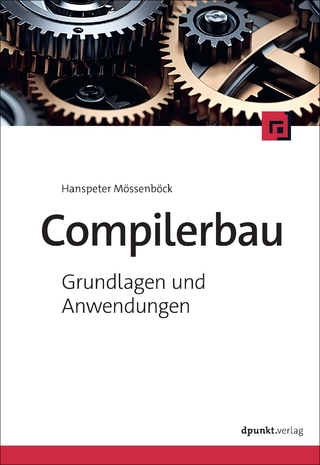
Fundamental Approaches to Software Engineering
Springer Berlin (Verlag)
978-3-540-33093-6 (ISBN)
Invited Contributions.- A Programming Model for Service Oriented Applications.- Software Engineering: Emerging Goals and Lasting Problems.- Distributed Systems.- GPSL: A Programming Language for Service Implementation.- A Formal Approach to Event-Based Architectures.- Engineering Self-protection for Autonomous Systems.- Orthogonal Process Activities.- A Graph-Based Approach to Transform XML Documents.- OMake: Designing a Scalable Build Process.- Automatic Generation of Tutorial Systems from Development Specification.- A Software Implementation Progress Model.- Behavioral Models and State Machines.- Regular Inference for State Machines with Parameters.- Automated Support for Building Behavioral Models of Event-Driven Systems.- A Behavioral Model for Software Containers.- Empirical Studies.- An Empirical Study of the Impact of Asynchronous Discussions on Remote Synchronous Requirements Meetings.- Evaluation of Expected Software Quality: A Customer's Viewpoint.- Using Design Metrics for Predicting System Flexibility.- Requirements and Design.- Combining Problem Frames and UML in the Description of Software Requirements.- Amplifying the Benefits of Design Patterns: From Specification Through Implementation.- The Good, the Bad and the Ugly: Well-Formedness of Live Sequence Charts.- Concerned About Separation.- Model-Based Development.- Algebraic Specification of a Model Transformation Engine.- Fundamentals of Debugging Using a Resolution Calculus.- A Technique to Represent and Generate Components in MDA/PIM for Automation.- Validation and Verification.- Argus: Online Statistical Bug Detection.- From Faults Via Test Purposes to Test Cases: On the Fault-Based Testing of Concurrent Systems.- Automated Systematic Testing of Open Distributed Programs.- Formal Simulation andAnalysis of the CASH Scheduling Algorithm in Real-Time Maude.- Tool Demonstrations.- JAG: JML Annotation Generation for Verifying Temporal Properties.- LearnLib: A Library for Automata Learning and Experimentation.- Software Evolution.- Trace-Based Memory Aliasing Across Program Versions.- The Pervasiveness of Global Data in Evolving Software Systems.- Relation of Code Clones and Change Couplings.
| Erscheint lt. Verlag | 16.3.2006 |
|---|---|
| Reihe/Serie | Lecture Notes in Computer Science | Theoretical Computer Science and General Issues |
| Zusatzinfo | XIV, 425 p. |
| Verlagsort | Berlin |
| Sprache | englisch |
| Maße | 155 x 235 mm |
| Gewicht | 1260 g |
| Themenwelt | Mathematik / Informatik ► Informatik ► Software Entwicklung |
| Informatik ► Theorie / Studium ► Compilerbau | |
| Schlagworte | algorithms • Annotation • Automata • Component Systems • Debugging • Design • Distributed Systems • formal methods • Metamodeling • Modeling Techniques • program analysis • Requirements Engineering • software architecture • Software Development Tools • Specification • System Analysis • systems modling • Testing • UML • Validation • Ver • verification • Web Services |
| ISBN-10 | 3-540-33093-3 / 3540330933 |
| ISBN-13 | 978-3-540-33093-6 / 9783540330936 |
| Zustand | Neuware |
| Haben Sie eine Frage zum Produkt? |
aus dem Bereich


